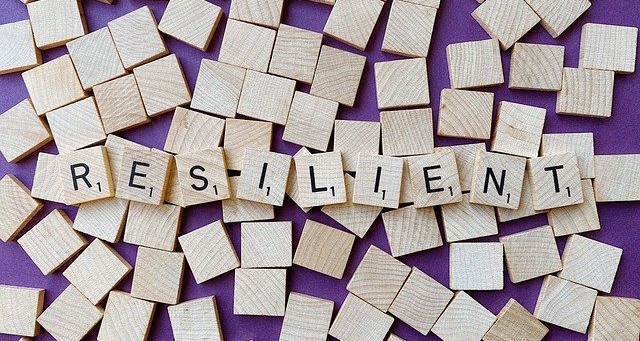Business resilience
Contents |
[edit] Introduction
In 2020 the double whammy of a coronavirus pandemic and an indeterminate prediction of the outcome of Brexit negotiations has led to a new consideration in boardrooms up and down the country. The word on directors’ lips is “resilience”.
Building resilience into an organisation requires focus in three distinct areas:
- Strategy at corporate level.
- Day-to-day operational policies.
- Workforce adaptability.
[edit] Strategy at corporate level
- Construction projects rely on supply chains. Whereas price has generally been the dominant factor, procurers should also consider the vulnerability of long supply chains and logistical reliability.
- Consider building cash reserves to tide over shortages or unexpected crises such as a pandemic rather than paying large bonuses or distributing over generous dividends.
- Carrying increased stock and spares so there is less reliance on “just in time” deliveries.
- Designing projects with a greater emphasis on using local products and labour.
[edit] Day-to-day operational policies
- This is about rapid response to changing circumstances in order to survive.
- Pubs turning into takeaways and the motor industry producing ventilators in response to the coronavirus pandemic were examples of agile management thinking on its feet.
- The incredible speed with which the Nightingale hospitals were established shows what an industry can achieve when it has a rapid response mindset.
- Carry out management exercises in scenario planning for different potential situations that could arise; such as power cuts, terrorist attacks, natural disasters, changes in legislation, industrial action, supply chain disruption, pandemics and so on.
[edit] Workforce adaptability
- Reliance on one key individual is risky and shadow working is desirable.
- The ability of a business to have a workforce that can continue to function by remote working has proved to be life saving for some companies during national lock downs.
- The construction industry has had to adapt its practices to social distancing to stop the spread of COVID-19. This entails detailed planning of overlapping trades and installation to avoid proximity clashes.
There is every chance that 2020 will be seen as disastrous, but the subsequent recovery will kick start a number of innovations and changes to working practices. Artificial Intelligence, the internet of things and smart buildings are likely to feature in technical advancement but the coronavirus pandemic has shown up a number of weaknesses that will need addressing and moreover it has caused people to re-evaluate their lifestyle. This will force cultural change to the working environment. Shorter working hours, improved productivity through technology and a greater respect for the environment could herald a new dawn. It is an opportunity to reset the clock.
[edit] Related articles on Designing Buildings Wiki
- Adaptability.
- BREEAM Adaptation to climate change.
- BREEAM Designing for durability and resilience.
- Building back better with BREEAM.
- Building Back Better: Resilience
- Building flood resilience.
- Coronavirus.
- Design flexibility.
- Designing resilient cities: a guide to good practice (EP 103).
- Engineering resilience to human threats.
- Future proofing construction.
- Managing and responding to disaster.
- Pressing pause to avoid errors.
- Property flood resilience.
- Resilience.
- Re-evaluating the design life of buildings.
- Two steps towards a more resilient world.
Featured articles and news
Apprenticeships and the responsibility we share
Perspectives from the CIOB President as National Apprentice Week comes to a close.
The first line of defence against rain, wind and snow.
Building Safety recap January, 2026
What we missed at the end of last year, and at the start of this...
National Apprenticeship Week 2026, 9-15 Feb
Shining a light on the positive impacts for businesses, their apprentices and the wider economy alike.
Applications and benefits of acoustic flooring
From commercial to retail.
From solid to sprung and ribbed to raised.
Strengthening industry collaboration in Hong Kong
Hong Kong Institute of Construction and The Chartered Institute of Building sign Memorandum of Understanding.
A detailed description from the experts at Cornish Lime.
IHBC planning for growth with corporate plan development
Grow with the Institute by volunteering and CP25 consultation.
Connecting ambition and action for designers and specifiers.
Electrical skills gap deepens as apprenticeship starts fall despite surging demand says ECA.
Built environment bodies deepen joint action on EDI
B.E.Inclusive initiative agree next phase of joint equity, diversity and inclusion (EDI) action plan.
Recognising culture as key to sustainable economic growth
Creative UK Provocation paper: Culture as Growth Infrastructure.
Futurebuild and UK Construction Week London Unite
Creating the UK’s Built Environment Super Event and over 25 other key partnerships.
Welsh and Scottish 2026 elections
Manifestos for the built environment for upcoming same May day elections.
Advancing BIM education with a competency framework
“We don’t need people who can just draw in 3D. We need people who can think in data.”






















